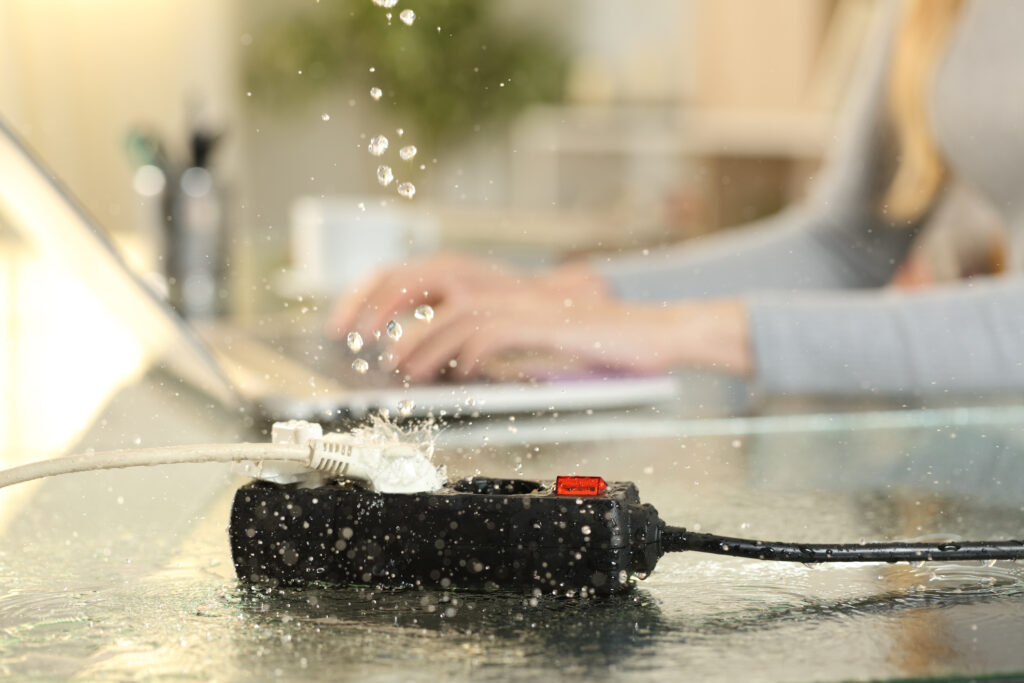Water damage is a homeowner’s nightmare, wreaking havoc on property and possessions alike. While immediate concerns often revolve around structural integrity and salvaging belongings, an equally pressing matter demands attention: the intricate connection between water damage and electrical systems. Understanding the potential dangers and following safety tips underscore the importance of professional water damage restoration to ensure the well-being of your home and loved ones. 
Water is a natural conductor of electricity, making the combination a perilous one. When water infiltrates your home, whether due to a burst pipe, flooding, or a leaky roof, it can compromise the electrical systems within the walls. This poses a dual threat: not only can water cause immediate electrical malfunctions, but it also sets the stage for long-term issues, such as corrosion and mold growth.
One common consequence of water damage is short circuits. When water contacts electrical components, it can lead to an electrical short, causing fuses to blow or circuit breakers to trip. However, the danger doesn’t stop there. If water persists or seeps into hidden areas, it can lead to corrosion of wiring and electrical components, jeopardizing the safety of your home.
If you experience water damage in your home, your first course of action should be to cut off the power supply. This prevents the risk of electrical shocks and minimizes the potential for further damage. Locate your circuit breaker and turn off the main switch.
Steer clear of wet or flooded areas until you are certain the power is safely turned off. Water can seep into outlets, appliances, and wiring, creating an extremely hazardous situation. Prioritize safety by keeping a significant distance from any water-damaged electrical systems.
If you must venture into a water-damaged area, ensure that you are dry and use tools with insulated handles to reduce the risk of electrical shock. It’s crucial to exercise caution, as even a small amount of water can be enough to transmit an electric current.
While the temptation to tackle water damage and electrical issues yourself may be strong, it is essential to resist the urge. Water damage restoration is a complex process that requires specialized knowledge and equipment. DIY attempts can exacerbate the problem, leading to increased risks and costs.
Water damage restoration professionals play a pivotal role in safeguarding your home from the risks associated with water-damaged electrical systems. These experts possess the knowledge and experience needed to assess damage, safely extract water, and implement effective drying techniques. Furthermore, they can identify compromised electrical components and collaborate with electricians for a thorough inspection and repair of the electrical systems. Entrusting the restoration process to these professionals prioritizes the safety of your home and family, safeguarding against potential long-term consequences. Timely intervention by these experts can prevent the development of mold, corrosion, and other issues that may compromise the structural integrity of your home.
Restoration 1 of Des Moines, a trusted name in water damage restoration, offers the expertise to assess, extract, and restore your home. Our team understands the intricate relationship between water and electricity, prioritizing safety and safeguarding against potential long-term issues. By choosing our services, you make a proactive investment in your home’s well-being. In times of crisis, our experts stand as a beacon of reliability and expertise, ready to restore your home and prevent water damage from compromising its safety and integrity. Trust the professionals to bring your home back to life.